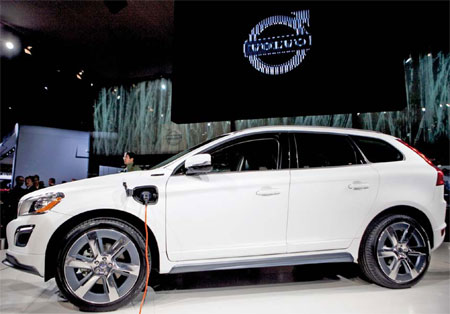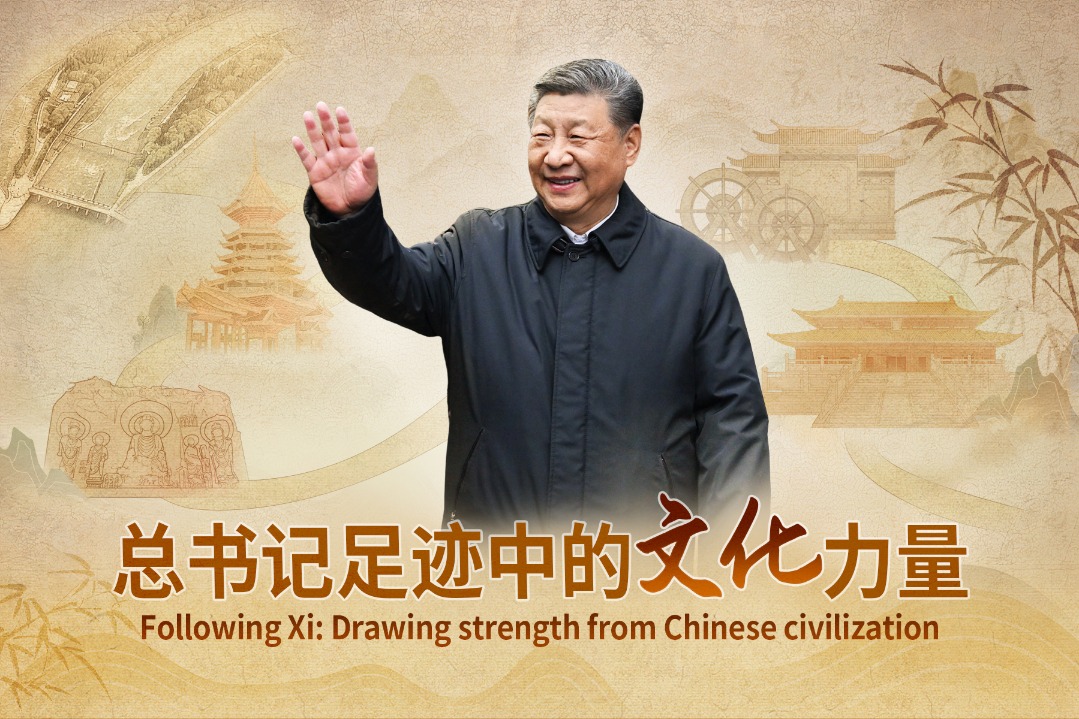Making the right turns

|
The Volvo AB XC60 plugin hybrid concept vehicle at the 2012 North American International Auto Show in Detroit. Andrew Harrer / Bloomberg |
 |
Bridging cultural differences key to success of overseas M&A deals
Even as foreign automakers leave no stone unturned to grow their market share in China, their domestic peers have been pushing on with key acquisitions in the auto component and car manufacturing sectors in Western markets.
As such moves gain momentum, the challenge for most Chinese companies is to successfully integrate the acquired Western companies with Chinese work ethics and culture, say industry experts.
Chinese automaker Geely, which triggered such outbound moves with its big-ticket acquisition of Sweden-based Volvo in 2010, feels that such challenges are not daunting if both companies are willing to work together toward a common goal.
Li Shufu, chairman of Zhejiang Geely Holding Group, says that Geely and Volvo are more like brothers rather than "father and son". This has been the essence of the relationship and part of a broader strategy under which Volvo will pursue an independent path in China, says Li.
In 2011, Volvo sold 449,255 cars around the world, a 20.3 percent increase year-on-year. During the same period Volvo sales in China reached 47,140, 55 percent higher than the previous year, making it the third largest market for the company after the US and Sweden.
Freeman Shen, senior vice-president and chairman of China operations at Volvo, says the company considers China its big hope for future growth with output still falling far short of vehicle demand.
But for the moment, Volvo is keener on expanding its production capacity in China with a plant apiece in Chengdu, Sichuan province and Daqing, Heilongjiang province. The capacity expansion plan has already been approved by the Volvo board, but still needs a green light from the Chinese government to get off the drawing board.
"Once the new factories are up and running, we will also see a mark-up in our market share," Shen says, adding that over the mid to long term Volvo is eyeing a 20 percent share of the luxury car market in China.
One of the major reasons why Chinese automakers have not been really successful in big-name auto acquisitions has been their focus on small and budget cars, and relative weakness across other categories and core technologies. To get around this bottleneck, many of these companies are now investing considerable sums on technology upgrades and on moving up the ladder.
Domestic firms that teamed up with global auto majors for joint ventures in China have also found that the marriage has not been that fruitful. Even though some of the JVs have had a long time span of 20 years, the Chinese partners have not really gained much on the core technology or spare parts front. Rather, Chinese companies have become even more reliant on their Western partners, industry experts say. To some extent this also explains the surge in Chinese mergers and acquisitions, especially in auto spare parts and ancillaries.
In 2010, Tengzhong Heavy Industrial Machinery Company had to pull out of the deal to acquire the iconic US brand Hummer, as its plan failed to get the required clearances.
Last year Power Diversity Automobile Trading Co, one of the biggest auto trading companies in China, and China Youngman Automobile Group, joined hands to acquire the troubled Swedish auto brand Saab.
The deal ran into rough weather, as it did not pass muster with Saab shareholder General Motors on grounds that it infringed intellectual property rights.
Jingzhou Tao, managing partner of Dechert LLP, an international law firm, feels that companies need to exercise caution before jumping into overseas deals.
"They should carefully choose the targets, work out a reasonable price and have a ready-made integration plan. Government support and adequate funds should not be the prime considerations for such moves," he says.
"Though Chinese auto companies have been active in overseas acquisitions recently, I would still say that their achievement has been trivial compared with the 'tuition fees' they have paid over the years."
Despite all these hurdles, Geely seems to be committed to make its Volvo acquisition a success story.
For Volvo, China is now a "second home market" as its operations are no longer confined to just sales but also to sourcing, production and research. In many ways, Volvo's success can also be attributed to its core management group that is equally at home with Chinese and Western cultures.
"The close cooperation with dealers and suppliers has also helped us in China. Over the long term, Volvo will enhance its business presence in emerging countries even as it maintains its position in European and US markets," Shen says.
According to the company, in the next five to six years, sales in China will account for nearly one-fourth of Volvo's global sales, which are projected at 200,000 units in the medium term. The company also says that while there will be both Chinese and Swedish factories, both will have the same brand name, quality evaluation systems, and technology standards.
But given the fact that Swedish and Chinese consumers have different preferences and driving habits, Shen says that Volvo China will cater more to Chinese preferences and provide high-quality yet cost-efficient models, and also fix prices accordingly.
Though many industry analysts had dubbed the Geely-Volvo deal as "a European wife married to a Chinese husband", Shen says Volvo will strive to maintain its identity.
"Volvo will still be positioned as a luxury brand for successful people, especially those who cherish succinct design and absolute safety. We will stick to the same technology and quality standard in China as they do in Sweden. Safety has always been an asset for Volvo, and we will not compromise on this."
Recently, Volvo won an award instituted by the US-based IIHS for its designs that protect drivers during accidents. It is the only European brand that has won such an award.
At the same time Shen says there are challenges in China. "In the short term, the real challenge is how to achieve quick development and recruit international talent, while in the mid to long term, the challenge is to achieve cultural fusion between the two nations."
Tao feels that it is important for Geely and Volvo to reach agreement on the long-term goals to make the marriage work.
"Having secured an agreement does not necessarily mean that it is a successful deal. Finally it all boils down to whether the deal is revenue accretive in the long run," he says. "Although Geely has promised to keep Volvo independent for now, it is quite possible that the view may change later. Something like that would certainly affect the future of Volvo. The critical factor for the success of any M&A deal is effective communication between both parties. This is the prerequisite for stable and sustainable development."































